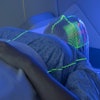Breast brachytherapy has become increasingly popular for older and elderly women with early-stage breast cancer, but they may wish to think twice before selecting this treatment, based on a study published in the Journal of Clinical Oncology.
Researchers found that women older than 65 who received breast brachytherapy had significantly more wound and skin complications after 12 months than women who received conventional whole-breast radiotherapy (J Clin Oncol, October 22, 2012).
The team led by Dr. Carolyn Presley, a clinical fellow at Yale University School of Medicine, used the U.S. Centers for Medicare and Medicaid Services (CMS) Chronic Condition Data Warehouse to identify all women ages 66 to 94 who received breast conservation surgery from January 2008 through June 2009. A total of 29,648 patients were identified, of whom 4,671 (15.8%) had received brachytherapy following surgery.
After adjusting for patient characteristics and treatment selection bias, the complication rate for women who had whole-breast irradiation was 18.4%, compared with 35.2% for those who had brachytherapy. Rates of wound complication, fat necrosis, infection, and rib fracture were significantly higher in women treated with brachytherapy, the authors wrote.
The number of patients receiving breast brachytherapy after breast conservation surgery has risen dramatically among senior women with Medicare insurance. In 2000, fewer than 1% received this treatment; however, by 2006, the percentage had risen to 10%.
"This treatment method seems ideal in theory, but we found it concerning that such an important clinical decision that affects so many women was being made on the basis of theory, rather than scientific evidence," said principal investigator Dr. Cary Gross, an associate professor of internal medicine at Yale.



















